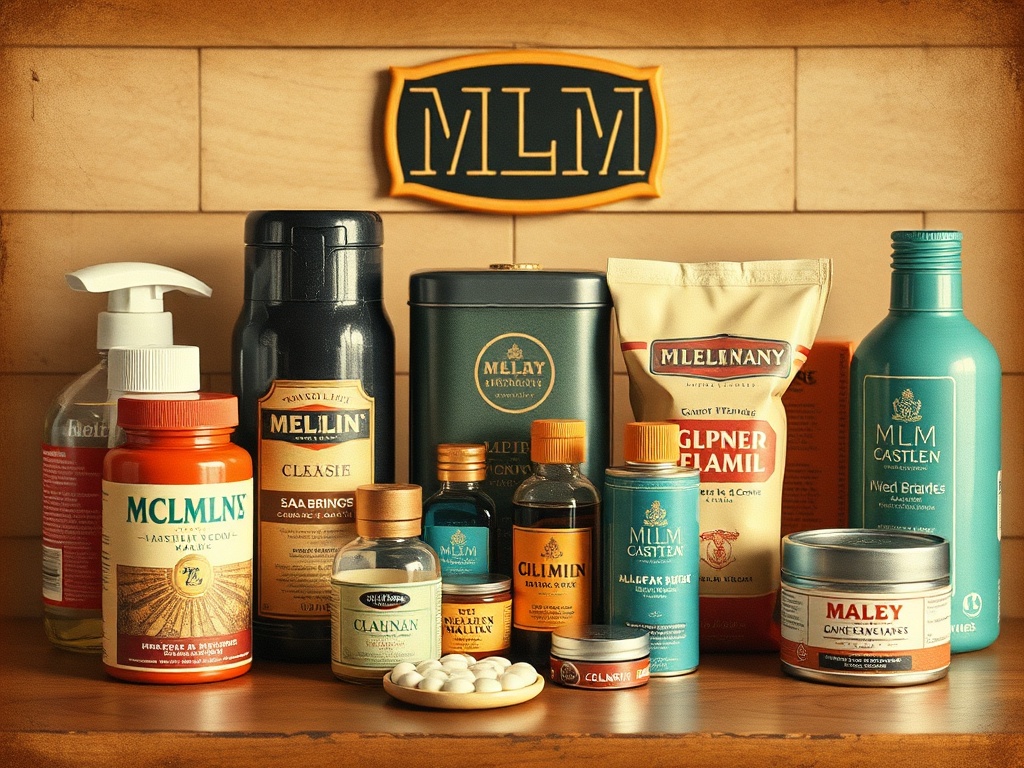Multi-level marketing (MLM) products span health supplements, skincare, household supplies, and more.
They can offer innovative formulas and niche offerings, but quality and value vary widely. Whether you’re a consumer evaluating a purchase or considering joining a sales team, learning how to assess MLM products helps protect your wallet and your reputation.
What to check first

– Ingredients and transparency: Look for full ingredient lists, concentrations, and sourcing details. Products that hide key ingredients or use vague terms like “proprietary blend” can make it hard to judge efficacy or safety.
– Third-party testing: Independent lab tests for purity, potency, and contaminants add credibility. Certifications (e.g., NSF, USP, ECOCERT) provide extra assurance for supplements, cosmetics, and organic claims.
– Clinical evidence: Product claims should be backed by human clinical trials or reliable research. Small, manufacturer-funded studies aren’t necessarily invalid, but independent replication strengthens confidence.
– Labeling and claims: Be cautious when products promise cures, rapid weight loss, or miracle benefits. Legitimate products will state what they can reasonably achieve and include disclaimers required by regulators.
Pricing and value
– Compare to retail alternatives: MLM pricing often includes margins for distributors, which can make products costlier than similar items sold through regular retail. Compare ingredient lists, concentration, and pack sizes to find true value.
– Cost-per-use calculation: Divide the total price by the number of recommended uses to see realistic cost. A high upfront price can still be a good value if per-use cost compares favorably to mainstream options.
– Subscriptions and autoship: Many MLMs use regular shipment plans.
Understand cancellation rules and any penalties before enrolling.
Practical red flags
– Heavy emphasis on recruitment: If training, incentives, and marketing materials focus more on signing new distributors than selling products to real customers, that points to a revenue model driven by recruitment rather than retail demand.
– Inventory loading: Pressure to buy large starter kits or maintain inflated personal inventory to qualify for commissions can burden distributors with unsold merchandise.
– Vague income claims: Be skeptical of promotional materials showcasing extraordinary incomes without transparent income disclosure statements and realistic averages.
– No clear refund policy: A fair, easily accessed money-back guarantee for unsatisfied customers is a positive sign. Beware of restrictive return windows or complicated processes.
Consumer tips before buying or joining
– Request samples or trial sizes to test product performance before committing to large purchases or monthly plans.
– Read independent reviews and community forums to learn about long-term effects, customer service, and actual resale experiences.
– Ask for the company’s income disclosure statement, compensation plan, and refund policy in writing. Look for realistic expectations and documented averages.
– Check regulatory history: Search for any enforcement actions, complaints, or recalls associated with the company or its products.
Sustainability and ethics
Consumers increasingly value sustainable sourcing, cruelty-free practices, and fair labor. Ask companies about supply chains, packaging materials, and environmental commitments if these factors matter to you.
Making a decision
MLM products can be high-quality and effective, but solid due diligence is essential.
Focus on transparent ingredients, independent testing, fair pricing, and business practices that prioritize retail sales. Whether buying for personal use or evaluating a business opportunity, prioritize products and companies that stand up to scrutiny and respect consumer protections. If something feels off—especially when pressure tactics are involved—walk away and explore mainstream or independent brands that offer comparable value with clearer policies.